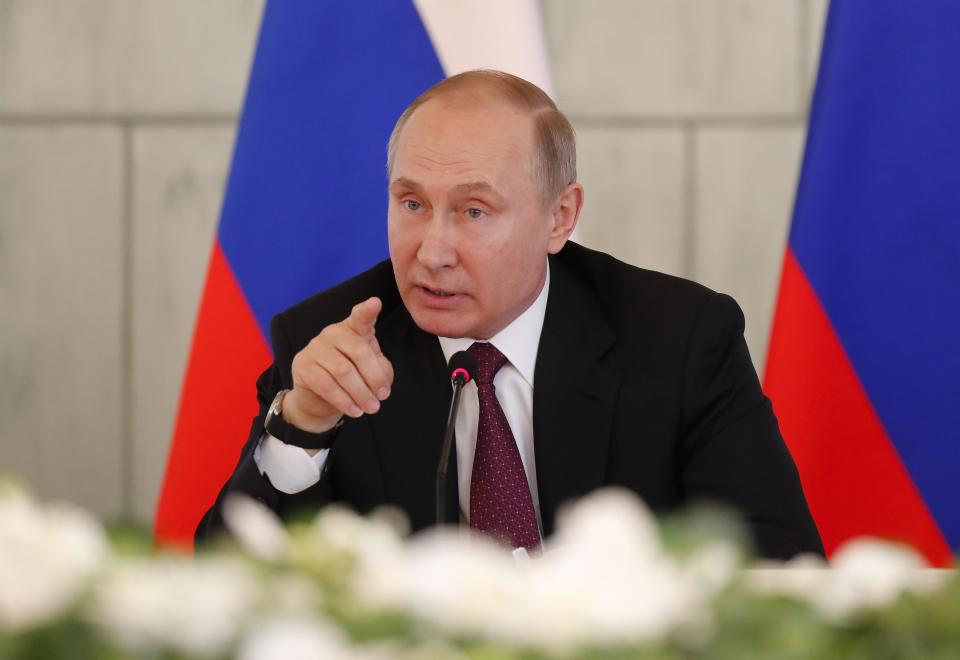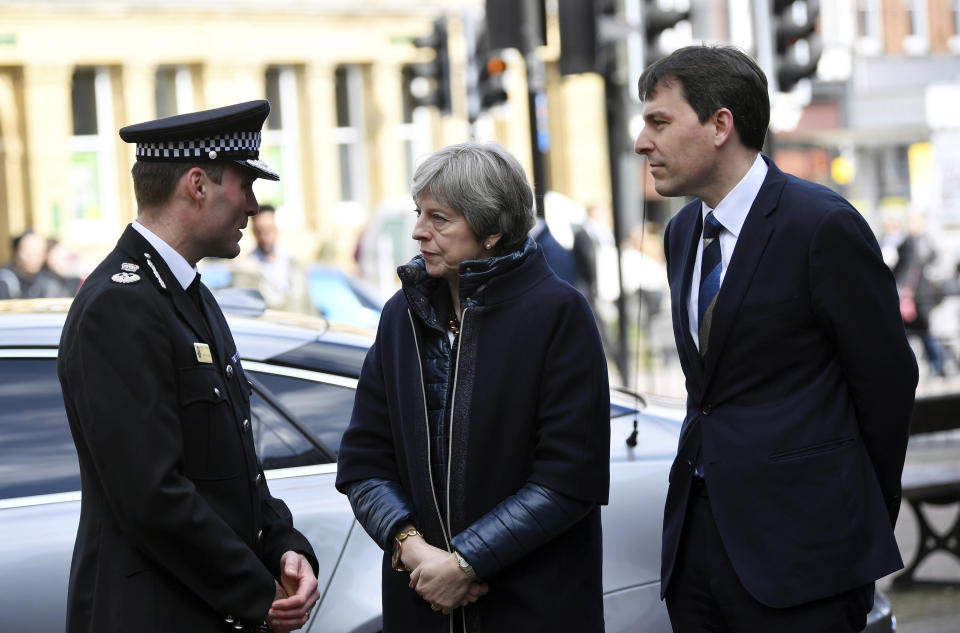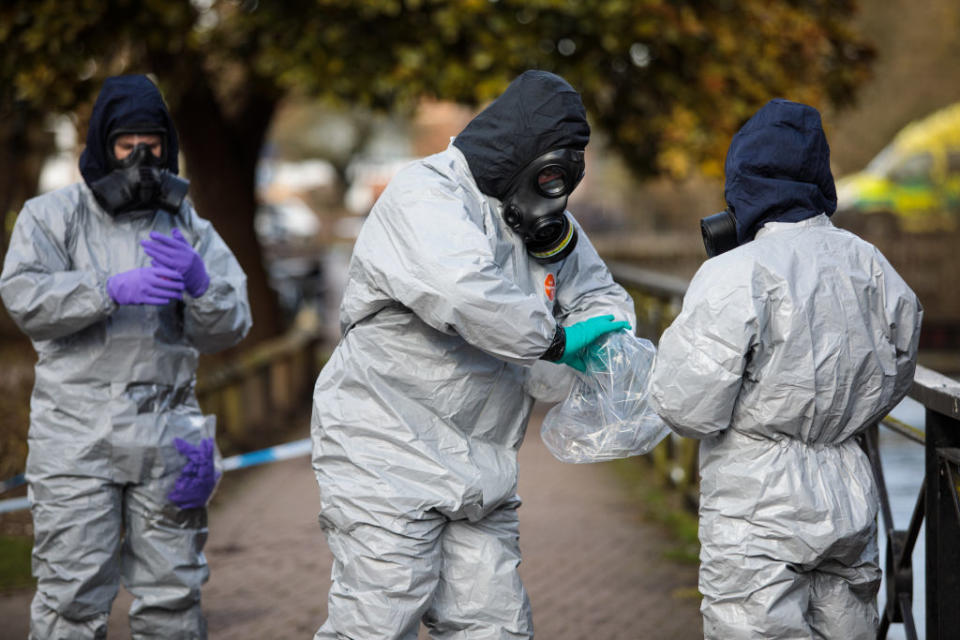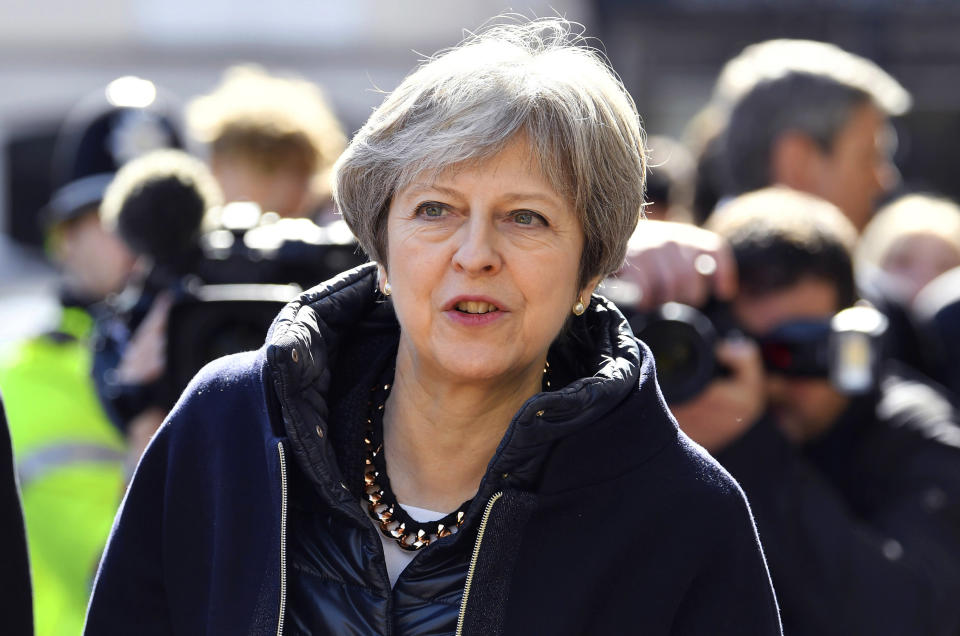Boris Johnson personally blames Putin for Salisbury spy poison attack as war of words escalates

Boris Johnson has taken the war of words with Russia one step further by suggesting that Vladimir Putin was personally involved in the attack on ex-spy Sergei Skripal.
The Foreign Secretary said it was “overwhelmingly likely” that the Russian president ordered the use of a nerve agent in the attack against Mr Skripal in Salisbury.
Speaking on a visit to the Battle of Britain Bunker museum in Uxbridge with his Polish counterpart Jacek Czaputowicz, Mr Johnson said: “Our quarrel is with Putin’s Kremlin, and with his decision – and we think it overwhelmingly likely that it was his decision – to direct the use of a nerve agent on the streets of the UK, on the streets of Europe, for the first time since the Second World War.
“That is why we are at odds with Russia.”

His comments were met with a scathing rebuke from Mr Putin’s spokesman Dmitry Peskov, who said: “We have said on different levels and occasions that Russia has nothing to do with this story.
“Any reference or mentioning of our president is nothing else but shocking and unpardonable diplomatic misconduct.”
MOST POPULAR TODAY ON YAHOO
Woman removes her own eyes during drug-induced psychosis, claims ‘life is beautiful now’
Deaths of 10,000 Brits in first seven weeks of the year linked to NHS cuts
E-cigarettes actually ‘do more harm than good’, new study claims
Mr Johnson’s move to blame the attack on Mr Putin come as Britain awaits Russia’s response to its expulsion of 23 diplomats.
Moscow is also considering its response to the United States after Donald Trump’s administration imposed sanctions on Russians allegedly involved in interfering with the 2016 US elections and cyber-attacks.

Asked on Friday whether Moscow would expel UK diplomats, Russia’s foreign minister Sergei Lavrov said: “Of course we will.”
Mr Lavrov also gave a dismissive response to Defence Secretary Gavin Williamson’s call for Russia to “go away and shut up”.
Mr Lavrov said: “I guess he wants to go down in history with some bombastic statements … Maybe he lacks education, I don’t know.”
A Downing Street spokesman would not be drawn on whether Theresa May endorsed Mr Williamson’s comments, saying only: “The Prime Minister sent her own very clear message to Russia over the course of the week.”

Corbyn warns the PM

Labour leader Jeremy Corbyn has urged Mrs May not to “rush way ahead of the evidence” – highlighting the way international crises such as the Iraq War had seen “clear thinking” overwhelmed by “emotion and hasty judgments”.
Writing in the Guardian, Mr Corbyn, whose response to the attack has led to criticism from some on his backbenches, said “the evidence points towards Russia” being responsible – but the possibility of gangsters being behind the attack rather than the Kremlin could not be excluded.
He said: “We agree with the Government’s action in relation to Russian diplomats”, but warned against a “new Cold War” of “escalating arms spending, proxy conflicts across the globe and a McCarthyite intolerance of dissent”.
Nato backing

Nato’s secretary general has voiced the strong support of the military alliance’s 29 members for the UK in the current row with Russia over the Salisbury poisoning.
Jens Stoltenberg was speaking a day after National Security Adviser Sir Mark Sedwill briefed Nato states at the North Atlantic Council in Brussels on the UK’s intelligence case for viewing Russia as responsible for the attack on Sergei Skripal.
Mr Stoltenberg told BBC Radio 4’s Today programme: “We have no reason to doubt the findings and assessments made by the British Government.”
And he added: “The Nato allies express strong political support for the UK. The UK is not alone. All allies stand in solidarity with the UK.”
Mr Stoltenberg said: “I am absolutely certain that Russia has underestimated the resolve and unity of Nato allies.”
Brexit conspiracy

Russia’s ambassador in London Alexander Yakovenko suggested that the British Government was making allegations against Moscow as part of an “anti-Russian campaign” to divert attention from Brexit.
Mr Yakovenko told RT television: “In order to divert attention from Brexit, the UK has to present something to the public to move (the focus) a little bit to the other side.”
The poisoning of Sergei and Yulia Skripal provided the UK authorities with a “possibility to launch this anti-Russian campaign,” said Mr Yakovenko, adding: “This is a scenario that was written in London but it’s a short-sighted scenario because, in the long run, Britain will have to explain what is behind all these things in Salisbury.”
He added: “Nobody saw even the pictures of these people in a hospital, whether they are alive or maybe they are in good health. Nobody talked to the doctors. There is absolutely no transparency in the case.
“We want to clarify all the questions behind this provocation.”
How events have unfolded
March 4:
Former Russian spy Sergei Skripal and his daughter Yulia are found unconscious on a park bench in Salisbury. Their identities are not yet made public.
March 5:
Mr Skripal and his daughter are publicly identified and declared “critically ill” in hopital.
March 6:

Politicians and media begin to speculate about Russian involvement in the incident and counter-terrorism officers take over the investigation. The Russian Embassy issues two statements accusing the media and Government of “anti-Russian” sentiment.
March 7:
Police say a nerve agent was used to poison Mr Skripal and his daughter and the case is being treated as attempted murder.
March 8:
Home Secretary Amber Rudd says a police officer, one of the first responders to the incident in Salisbury, is seriously ill in hospital. Politicians continue to speculate on Russian involvement but Prime Minister Theresa May stresses the need to give police the “time and space” to investigate.
Police say 21 people received treatment following the incident.
March 9:
More than 100 military personnel are deployed to Salisbury to help with the investigation and clean-up.
March 12:

Mrs May tells the House of Commons that the nerve agent is of Russian origin and the Government has concluded it is “highly likely” that Russia is responsible for the poisoning. She gives the Russian government until midnight on Tuesday to explain how the nerve agent came to be used in the UK.
Russian President Vladimir Putin’s press secretary Dmitry Peskov had previously said: “We consider inappropriate any mention of the Russian government in the context of what happened to Sergei Skripal.”
White House press secretary Sarah Huckabee Sanders says “the use of a highly lethal nerve agent against UK citizens on UK soil is an outrage”.
“We stand by our closest ally and the special relationship that we have,” she adds.
Downing Street issues a statement saying Theresa May spoke to French President Emmanuel Macron, who condemned the attack and offered his support.
US Secretary of State Rex Tillerson issues a statement saying he has “full confidence in the UK’s investigation and its assessment that Russia was likely responsible for the nerve agent attack”.
March 13:

US President Donald Trump sacks Rex Tillerson in a tweet.
Later, Mr Trump tells reporters outside the White House he plans to speak to Theresa May later that day, adding “as soon as we get the facts straight, if we agree with them, we will condemn Russia or whoever it may be”.
The Russian Embassy in the UK says Moscow “will not respond to London’s ultimatum”.
German Chancellor Angela Merkel tells the Prime Minister she stands in “full solidarity” with the UK in a phone call.
In a phone call with Theresa May, Mr Trump agreed the Russian Government “must provide unambiguous answers as to how this nerve agent came to be used” adding that the US “is with the UK all the way”.
March 14:

The UK is to expel 23 Russian diplomats in retaliation for the nerve gas attack in Salisbury, Theresa May tells MPs. She calls the incident an “unlawful use of force by the Russian state against the UK”. The Russian Embassy said the expulsion of 23 diplomats was “unacceptable, unjustified and shortsighted”.
Travel advice from the Foreign Office warns that travellers to Russia could face “anti-British sentiment or harassment” as a result of the political tension between the UK and Moscow.
Britain asks the international chemical weapons watchdog, the Organisation for the Prohibition of Chemical Weapons, to verify its findings that Moscow is behind the nerve agent attack in Salisbury.
March 15:
France backs the UK’s conclusion of Russian involvement, following a telephone call between Mr Macron and Mrs May.
Leaders of Britain, the US, Germany and France issue a joint statement blaming Russia for the Salisbury poison attack. The four allies urge Moscow to provide “full and complete disclosure” of its Novichok nerve agent programme to the Organisation for the Prohibition of Chemical Weapons.
Mrs May visits the scene of the nerve agent attack on Mr Skripal and his daughter in Salisbury.
March 16:
Foreign Secretary Boris Johnson says it is “overwhelmingly likely” that Vladimir Putin ordered the use of a nerve agent in the attack on Sergei Skripal.

 Yahoo News
Yahoo News 

